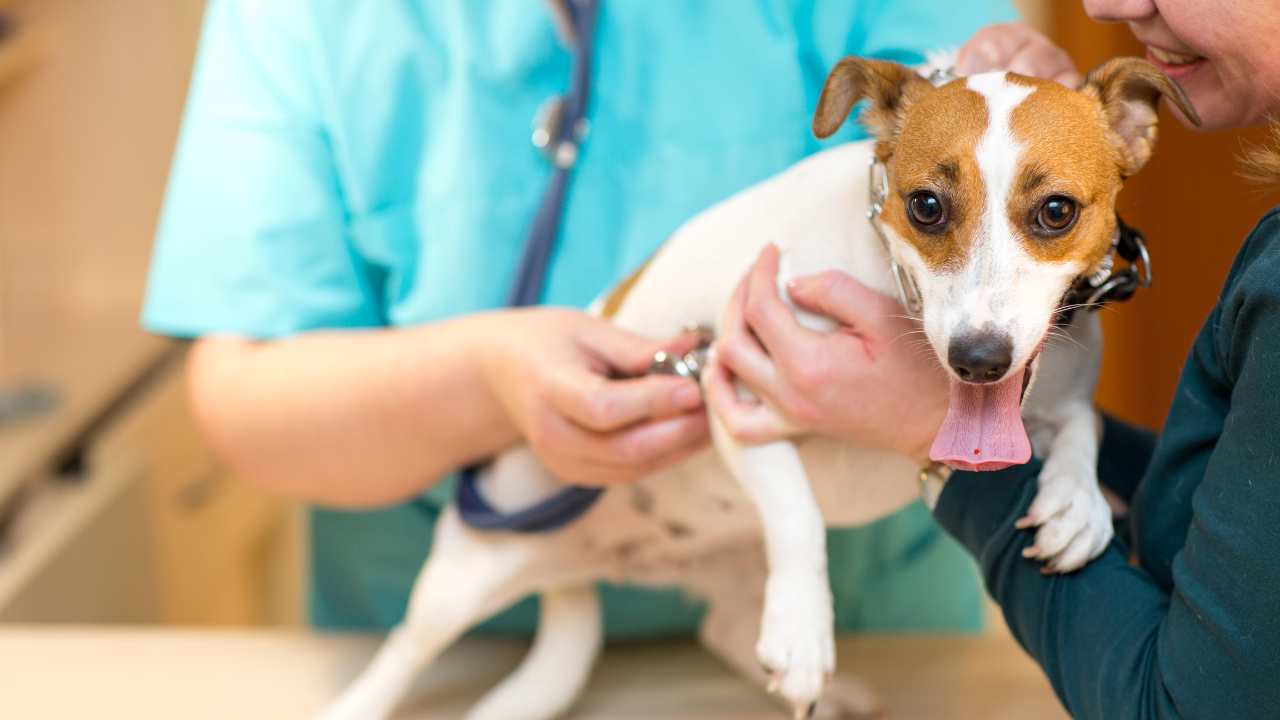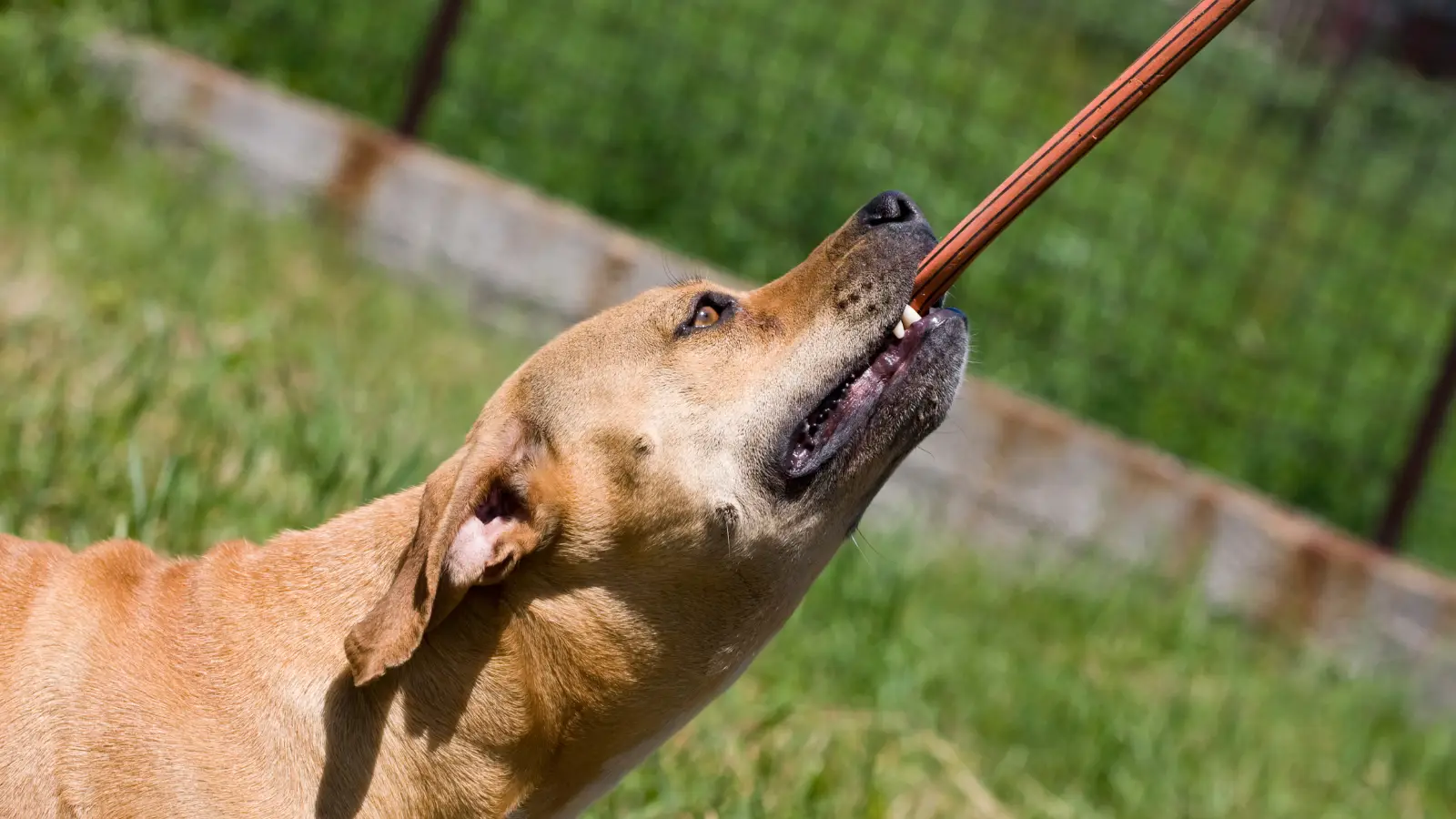
Why is My Dog Breathing Fast? Expert Guide
As a dog owner for over a decade, I’ve seen my fair share of concerns regarding my pets’ health. One of the more common questions I’ve encountered, especially from new dog owners, is: Why is my dog breathing fast?
It’s natural to feel alarmed when you notice your dog’s breathing rate pick up unexpectedly. After all, dogs can’t tell us when something’s wrong, and fast breathing can sometimes be a sign of a more serious issue.
I’ve had my moments of panic too, but over the years, I’ve learned that rapid breathing doesn’t always mean something’s wrong.
There are many reasons a dog might start breathing faster than usual and understanding these can help you figure out when it’s just a passing phase and when it’s time to take action.
In this post, I’ll walk you through the common causes of fast breathing in dogs, what to do when you spot it, and how to know if you should be worried. Let’s dive in.
Normal Dog Breathing: What Should You Expect?
Before we get into the reasons for fast breathing, let’s take a step back and understand what normal breathing looks like in dogs.
As a dog parent, you need to have a baseline so you can spot when something is off.
Generally, a resting dog breathes at a rate of 10-30 breaths per minute.
This can vary depending on your dog’s breed, age, and size. Smaller dogs tend to breathe faster, while larger dogs breathe more slowly.
For instance, my Labrador might have a slower resting breath rate than my Chihuahua.
When your dog is active, such as after a good play session or a walk, you’ll notice their breathing speeds up. This is completely normal.
But if you see your dog breathing fast while lying down or resting, it might be a cause for concern.
Common Reasons for Fast Breathing in Dogs
So, what exactly can cause a dog to start breathing rapidly? The reasons are quite varied, but not all of them are alarming. Here are some of the most common causes:
Exercise or Playtime
This is one of the most obvious reasons for fast breathing in dogs. Just like humans, dogs breathe faster when they’re exerting themselves.
After a long walk, a game of fetch, or a good run, it’s perfectly normal for your dog to breathe faster for a while.
When I take my dog, Max, for his evening jog, his breathing is noticeably faster as he catches his breath after running.
This kind of fast breathing will usually return to normal within a few minutes once your dog has rested.
Excitement or Stress
Dogs can also start breathing quickly when they’re excited or stressed. Ever noticed how your dog gets all hyped up when they hear the word “walk” or when someone knocks at the door?
That excitement can trigger faster breathing as their heart rate increases. Stressful situations, like a trip to the vet or a visit to a new place, can also make your dog’s breathing speed up.
When Max hears the leash jingling, he starts breathing faster because he knows it’s walk time.
It’s a positive response to excitement, and the breathing usually calms down once the excitement settles.
Heat or Weather
One of the most common reasons for rapid breathing in dogs, especially during warmer months, is overheating. Dogs don’t sweat the way humans do, so they rely heavily on panting to regulate their body temperature.
If the environment is too hot, or your dog has been exposed to the sun for too long, they may pant heavily and breathe faster in an attempt to cool down.
My friend’s Golden Retriever had a scary moment one summer when the dog was left outside for a bit too long on a hot day.
The dog started breathing fast, and at first, they thought it was due to excitement, but the heavy panting turned out to be a sign of overheating.
So, if your dog has been in the heat for too long, be sure to offer them water and cool them off immediately.
Pain or Injury
Sometimes, a dog’s rapid breathing can be a sign that they’re in pain.
If your dog has suffered an injury, whether it’s something visible like a cut or something internal like a sprain, they might start breathing faster as a response to the discomfort.
I once had a situation where Max accidentally stepped on a thorn while walking. His breathing became quicker and shallow, which signalled to me that he was in pain.
It’s important to always check your dog’s body for signs of injury or discomfort if you notice rapid breathing without any obvious cause.
Health Conditions
Health problems, such as respiratory issues, heart disease, or infections, can also lead to fast breathing in dogs.
In some cases, a dog with a respiratory infection, pneumonia, or even heart disease might struggle to breathe normally and compensate by panting heavily.
I had to take my previous dog, Bella, to the vet once after noticing that her breathing was consistently fast and shallow, even when resting.
It turned out she had an early sign of heart disease. While that was a tough situation, recognizing the abnormal breathing early on allowed me to get her the care she needed in time.
Age Factor
Older dogs often experience changes in their breathing patterns.
Age-related conditions, such as arthritis or weakened lungs, can cause them to breathe faster or more heavily than they did when they were younger.
My senior dog, Daisy, sometimes breathes a little faster now that she’s getting up in years. But I’ve learned to distinguish between normal ageing and signs of something more serious.
When to Be Concerned
While many reasons for fast breathing are harmless, there are times when rapid breathing signals something more serious. If you notice any of these signs,
it’s important to get your dog checked by a vet:
Labored Breathing
If your dog’s breathing appears laboured or they seem to be struggling to breathe (e.g., their chest heaving with each breath),
it’s a sign that something might be wrong. This could indicate a serious respiratory issue or heart problem.
Blue or Pale Gums
If your dog’s gums turn blue or pale, it’s a major red flag.
This could mean that your dog isn’t getting enough oxygen, which could be the result of heart failure, respiratory distress, or an obstruction in the airways.
Coughing or Wheezing
If your dog is not only breathing fast but also coughing or wheezing,
It’s worth a visit to the vet. These symptoms could point to respiratory issues like bronchitis or an infection.
Lethargy
If your dog’s increased breathing rate is accompanied by lethargy, lack of interest in food, or general weakness, it could be a sign that they’re unwell.
A sudden change in behaviour warrants a trip to the vet.
What You Can Do to Help Your Dog?
If your dog is breathing fast due to excitement, exercise, or heat, here’s what you can do to help:
- Cooling Off: If your dog is panting from the heat, get them into a cooler environment and offer them fresh water. A wet towel on their paws or a cool fan can help bring their body temperature down.
- Encourage Rest: After a play session or walk, give your dog time to cool down and catch their breath. Make sure they have a quiet place to relax.
- Keep Calm: If your dog is stressed or anxious, try to create a calm environment for them. Offering comfort, gentle strokes, or a favourite toy can help settle their nerves.
- Monitor Breathing: Keep an eye on your dog’s breathing rate, especially if they’re older or have known health issues. Keeping track of changes can help you detect problems early.
Health Issues to Watch Out For
While many causes of fast breathing are innocent, some health issues could lead to more severe consequences if not addressed early. Here are some health issues that might cause your dog to breathe fast:
- Heartworms: This parasitic infection can cause coughing, lethargy, and rapid breathing in dogs. Heartworm disease can be fatal if left untreated.
- Pneumonia: Bacterial or viral infections can cause a dog to struggle with breathing. Rapid or laboured breathing is a common symptom of pneumonia in dogs.
- Obesity: Overweight dogs are at greater risk of developing respiratory and heart problems. Obesity can lead to fast, shallow breathing, especially after exertion.
- Tracheal Collapse: Some small dog breeds are prone to a condition called tracheal collapse, where the windpipe weakens and collapses, making it hard for the dog to breathe.
How to Prevent Rapid Breathing in the Future?
Prevention is key when it comes to maintaining your dog’s health. Here are some tips on how to keep your dog from experiencing rapid breathing:
- Exercise in Moderation: Ensure that your dog gets plenty of exercise but avoid overexertion. Gradually increase their activity level to prevent overstimulation.
- Keep Them Cool: Always provide fresh water and a cool, shaded area for your dog, especially during hot weather.
- Monitor Weight: Keeping your dog at a healthy weight reduces the risk of breathing problems related to obesity.
- Regular Vet Visits: Schedule annual checkups to keep an eye on your dog’s overall health, especially if they’re older or have a breed predisposed to respiratory issues.
Conclusion
Fast breathing in dogs can be alarming, but as I’ve learned over the years, it’s not always a sign of something dire. Whether it’s excitement, heat, or even pain, there are many reasons why your dog might breathe fast.
But it’s important to know when to take a step back and assess whether it’s a normal occurrence or a sign of a more serious problem.
If you’re ever in doubt, don’t hesitate to reach out to your vet. Better safe than sorry, as the saying goes. Your dog’s health and well-being are worth the extra care.
Let me know in the comments if you’ve experienced this with your dog, or if you have any tips of your own. And if you found this helpful, be sure to subscribe for more pet care insights.



